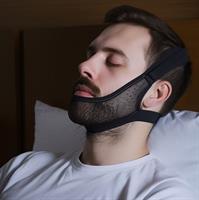Are you tired of waking up feeling groggy and unrested due to snoring? If so, you’re not alone. Snoring affects millions of women worldwide, and it can be disruptive to both your sleep and your overall well-being.
Discover what causes snoring in women, the lifestyle factors influencing it, and the medical conditions that may be linked to it. Most importantly, learn about the various strategies that can help you stop snoring and finally enjoy a peaceful night’s sleep.
Key Takeaways
-
Common causes of snoring among women include hormonal fluctuations, weight increase, sleeping difficulties and lifestyle factors.
-
Weight loss, mouth and throat exercises, snoring mouthpieces and CPAP devices can help reduce snoring in women.
-
Obstructive sleep apnea (OSA), hypothyroidism and nasal congestion are medical conditions linked to female snoring that should be addressed by a healthcare provider.
Understanding Female Snoring: Common Causes
Snoring occurs when the sound is produced due to the vibration of tissues in the airway during breathing while asleep. Snoring is prevalent among women, with approximately 28% of adult females snoring habitually. The causes snoring in women can be attributed to pregnancy, menopause, and weight gain, which can lead to partially blocked airways and disrupted sleep. However, it is important to understand that snoring normal for some individuals and may not always indicate a serious health issue.
Given the prevalence of snoring among women, grasping the factors that cause it becomes important. These factors may include:
-
Hormonal fluctuations
-
Weight increase
-
Sleeping difficulties
-
Drinking alcohol
-
Smoking
Moreover, exhaustion can result in the relaxation of muscle tissues, including those in the larynx, thus potentially causing snoring and increasing the risk of obstructive sleep apnea snoring.
Pregnancy and Snoring
Pregnancy is a common time for women to experience snoring due to hormonal changes, weight gain, and swollen nasal passages, particularly during the second and third trimesters.
In fact, it is estimated that more than 30% of women commence snoring during their second trimester. This is because weight gain, hormonal alterations, and augmented blood flow during pregnancy can all contribute to snoring.
One of the potential dangers associated with snoring during pregnancy is the increased risk of high blood pressure, which can pose a threat to both the mother and the unborn child, especially when obstructive sleep apnea occurs.
Consulting with a sleep medicine specialist may be helpful in addressing snoring issues during pregnancy, ensuring the safety of both the mother and the baby.
Menopause and Its Effects on Snoring
Menopause can increase the risk of snoring in women due to hormonal changes, decreased muscle tone in the throat, and weight gain. Menopause has been linked to a decrease in muscle tone in the throat, which can lead to female snoring.
Sleep-disordered breathing during menopause may manifest as:
-
Snoring
-
Hot flashes
-
Insomnia
-
Mood disorders
Hence, women undergoing menopause should be cognizant of the potential snoring increase and address it proactively.
Weight Gain and Its Role in Snoring
Excess weight, particularly around the neck, can constrict air passages and lead to snoring in women. Obesity and surplus weight can bring about the accretion of fat in the neck region, which can constrict the airways and impede airflow during sleep, resulting in snoring.
Moreover, weight gain can contribute to the emergence of sleep apnea, a condition characterized by pauses in breathing during sleep. Maintaining a healthy weight thus becomes key in reducing both the likelihood and intensity of snoring among women.
Lifestyle Factors That Influence Snoring in Women
Lifestyle factors such as alcohol consumption, smoking, and sleep position can influence snoring in women, potentially exacerbating the issue. Some factors that can contribute to snoring in women include:
-
Smoking
-
Alcohol consumption
-
Hormonal changes
-
Weight gain
-
Allergies
-
Underlying medical conditions
It’s important to address these factors in order to reduce snoring and improve sleep quality.
Addressing these lifestyle factors and making necessary changes can significantly impact the severity and frequency of snoring in women. A clear comprehension of these factors’ role in snoring can guide women in making informed decisions about their habits, contributing to enhanced sleep quality.
Alcohol Consumption and Snoring
Alcohol has been known to relax throat muscles, resulting in snoring. Alcohol consumption can exacerbate snoring in women by relaxing the muscles in the throat, causing the soft tissues to vibrate and result in louder snoring. Furthermore, alcohol has been linked to the lowest oxygen saturation observed among individuals prone to snoring and obstructive sleep apnea.
Reducing snoring and improving overall sleep quality may be achievable by avoiding alcohol before bed. It is necessary to consider alcohol consumption and its potential implications on sleep and snoring.
Smoking and Its Impact on Snoring
Smoking can induce inflammation and irritation in the airways, increasing the probability of snoring. Ceasing smoking may assist in relieving snoring.
Quitting smoking can have numerous health benefits, including reducing inflammation and irritation in the airways, which can ultimately help alleviate snoring. Making the decision to quit smoking can significantly improve sleep quality and overall well-being.
Sleep Position and Its Effect on Snoring
Sleeping on one’s back can lead to airway blockage and snoring, whereas adopting a side-sleeping position may be beneficial in preventing snoring. Sleeping on one’s side can help maintain open nasal passages and reduce the likelihood of snoring.
A conscious modification in sleep position could significantly affect both snoring and overall sleep quality. Experimenting with different sleep positions and finding the most comfortable and effective one can lead to a more peaceful night’s sleep.
Medical Conditions Linked to Snoring in Women
Medical conditions such as obstructive sleep apnea, hypothyroidism, and nasal congestion may be associated with snoring in female individuals and may necessitate medical intervention. Being aware of these medical conditions and their potential impact on snoring can help women identify the underlying cause of their snoring and seek appropriate treatment.
Women suspecting a medical condition to be the cause of their snoring should seek advice from their healthcare provider. Addressing these conditions can not only alleviate snoring but also improve overall health and well-being.
Obstructive Sleep Apnea and Snoring
Obstructive Sleep Apnea (OSA) is a sleep disorder characterized by pauses in breathing during sleep, often resulting in loud snoring. Sleep apnea refers specifically to OSA in this context, which can have serious health consequences if left untreated, including high blood pressure, stroke, heart attack, and diabetes.
Treatment options for OSA may include lifestyle modifications such as weight reduction, oral and pharyngeal exercises, and the utilization of a CPAP device. If you believe you might have OSA, consulting a healthcare professional to devise the right treatment plan for your needs is highly recommended.
Hypothyroidism and Its Connection to Snoring
Hypothyroidism, a condition in which the thyroid gland does not produce adequate amounts of the hormone thyroxine, can result in snoring due to the narrowing of the airways. Women with hypothyroidism are more likely to experience sleep apnea, which may subsequently lead to snoring.
Treating hypothyroidism with appropriate medication can help alleviate snoring and improve overall health. If you think that hypothyroidism might be the root cause of your snoring, a discussion with your healthcare provider about treatment options is advisable.
Nasal Congestion and Snoring
Nasal congestion resulting from allergies, sinusitis, or other growths can be linked to snoring. Nasal congestion can create additional resistance in the nasal passages, potentially leading to sleep-disordered breathing events such as snoring. Keeping the nasal passages open can help alleviate these issues.
Treating the underlying cause of nasal congestion, such as allergies or sinusitis, can help reduce snoring. Physicians may suggest a variety of treatments to help abate snoring caused by nasal congestion.
These could include a decongestant or a nightly saline nose rinse.
Strategies to Reduce Snoring in Women
Various strategies can help reduce snoring in women, including:
-
Weight loss
-
Mouth and throat exercises
-
Snoring mouthpieces
-
The use of a CPAP device
Implementing these strategies can significantly improve sleep quality and overall well-being.
Keep in mind that every individual is unique, and a strategy that is effective for one person may not necessarily work for another. Experimenting with different strategies and finding the most effective combination can help you stop snoring and enjoy a restful night’s sleep.
Weight Loss and Its Impact on Snoring
Losing weight can improve muscle function and reduce excess tissue around the neck, potentially easing snoring. Weight loss can lessen the amount of fatty tissue in the throat, thereby potentially aiding in the reduction of snoring in women.
If your snoring is aggravated by weight gain, prioritizing healthy lifestyle changes like regular exercise and a balanced diet can aid in weight loss and enhance your sleep quality.
Mouth and Throat Exercises
Practicing mouth and throat exercises can help strengthen muscles and reduce snoring. Exercises that target the muscles of the mouth and tongue, such as protruding the tongue and shifting it from side to side or producing exaggerated lip movements, can help reduce the likelihood of soft tissues vibrating and causing snoring in women.
Integrating these exercises into your daily schedule can enhance muscle function in the mouth and throat, thereby reducing snoring and fostering improved sleep quality.
Snoring Mouthpieces
Customized oral devices, fitted by a dentist, can help keep the airway open and reduce snoring. Snoring mouthpieces work by repositioning the jaw and tongue to open up the airway and prevent the vibration of throat tissues that causes snoring.
Despite possible side effects like dry mouth, drooling, and discomfort, choosing a comfortable mouthpiece that permits mouth breathing during sleep can significantly enhance sleep quality and diminish snoring.
Using a CPAP Device
Continuous positive airway pressure (CPAP) therapy can be prescribed to prevent airway collapse during sleep and alleviate snoring. A CPAP machine maintains the airway open during sleep by supplying positive pressure in the airways, preventing them from collapsing.
Using a CPAP device can help reduce or eliminate snoring in women, boost sleep quality, and alleviate snoring-related symptoms like daytime fatigue and sleepiness.
If you suspect that you may have sleep apnea or severe snoring, consult with a healthcare professional to determine if a CPAP device is the right treatment option for you.
Summary
In conclusion, snoring in women can result from various factors such as pregnancy, menopause, weight gain, lifestyle choices, and medical conditions. Understanding the causes of snoring and implementing strategies such as weight loss, mouth and throat exercises, snoring mouthpieces, and using a CPAP device can significantly improve sleep quality and overall well-being.
Remember that every individual is different, and it’s essential to experiment with various strategies to find the most effective solution for your snoring. By addressing the underlying causes of snoring, you can enjoy a peaceful and restful night’s sleep.
Frequently Asked Questions
How can a woman stop snoring?
To stop snoring, try sleeping on your side, raising the head of your bed, wearing nasal strips or a dilator, treating nasal congestion, limiting or avoiding alcohol and sedatives, quitting smoking and getting enough sleep. Additionally, losing weight and using an anti-snoring mouthpiece may also help.
Why has my wife suddenly started snoring?
It's possible that your wife has started snoring due to lifestyle changes such as drinking more alcohol, trying sleep aids, or gaining weight; as well as hormonal changes, allergies, underlying medical conditions, or a lack of sleep. Identifying the specific cause is key in finding an effective treatment.
What causes snoring in females weight?
Obesity can lead to snoring in females due to neck fat compressing the upper airway when lying down, making it more likely.
How do I stop my girlfriend from snoring so loud?
Encourage your partner to try different sleeping positions, elevate their head with pillows, and lead a healthier lifestyle. Additionally, you can use white noise, headphones, anti-snoring devices, and an anti-snoring pillow to block out the noise.
How can lifestyle factors influence snoring in women?
Lifestyle factors such as alcohol consumption, smoking and sleep position can all play a role in increasing snoring in women.





